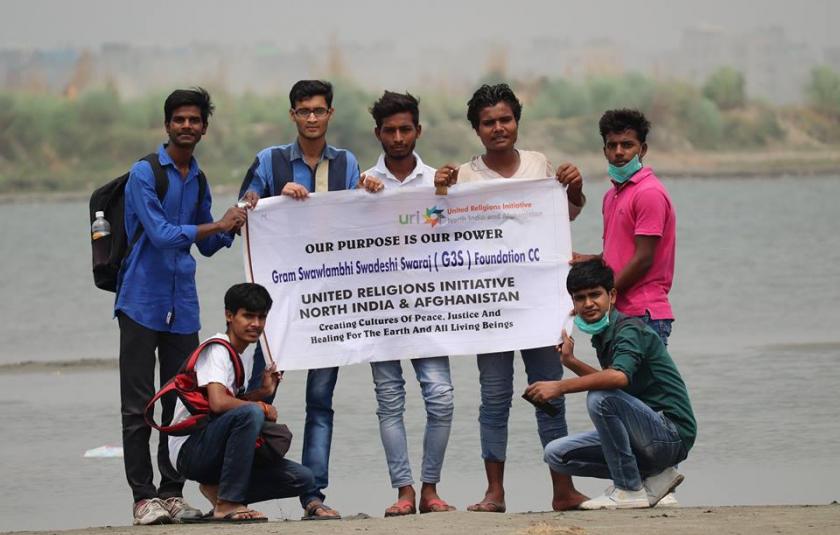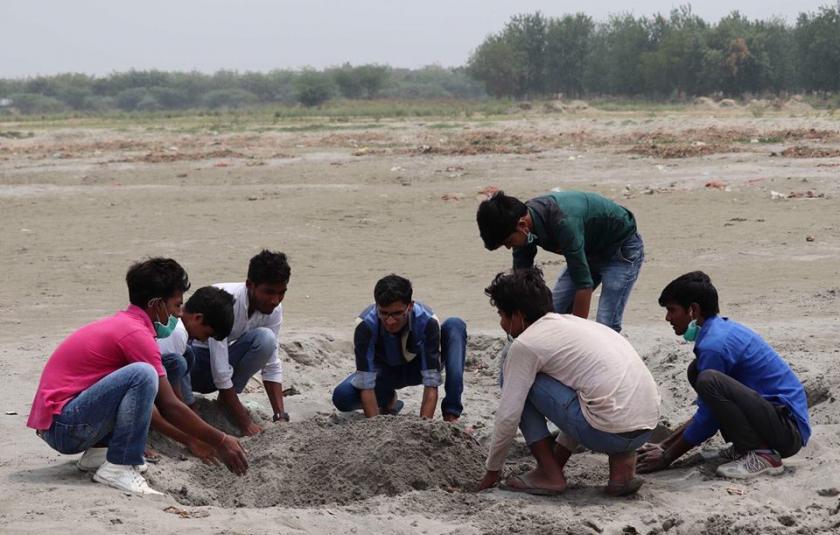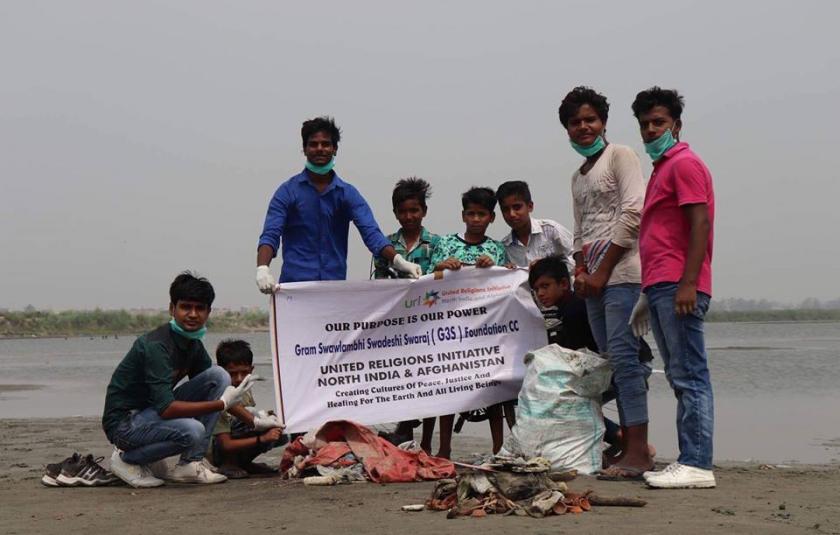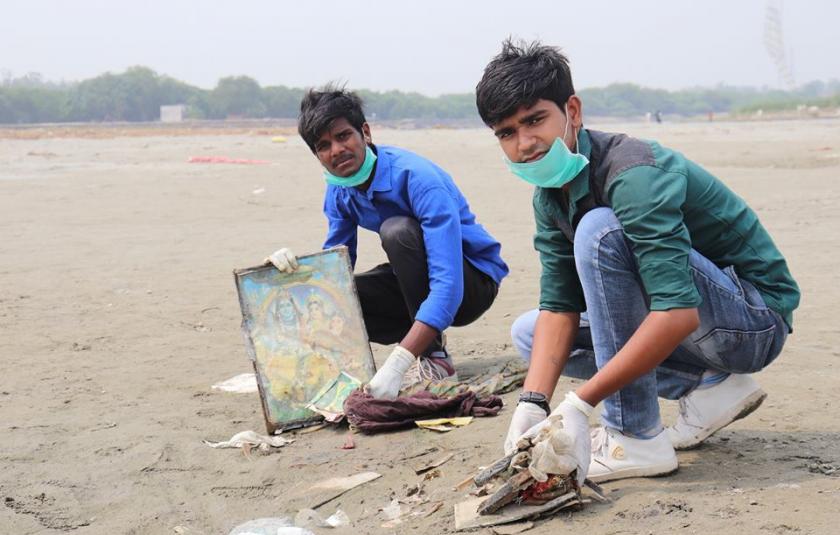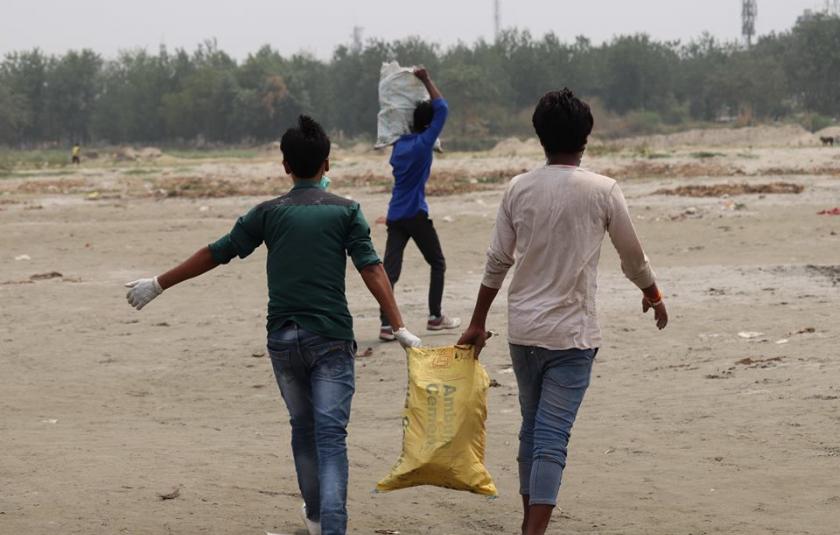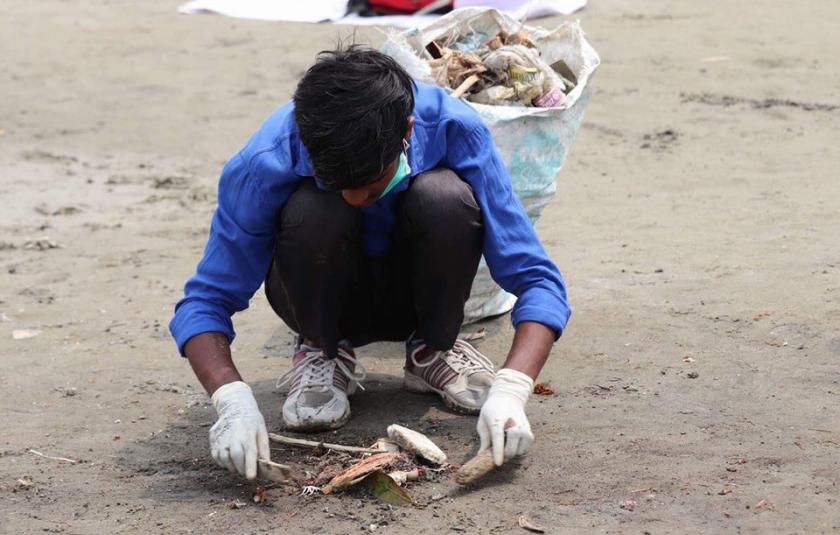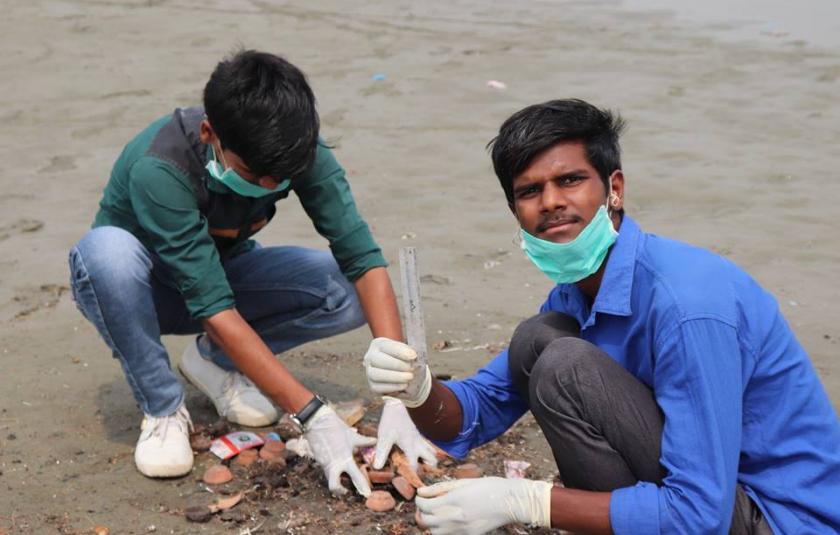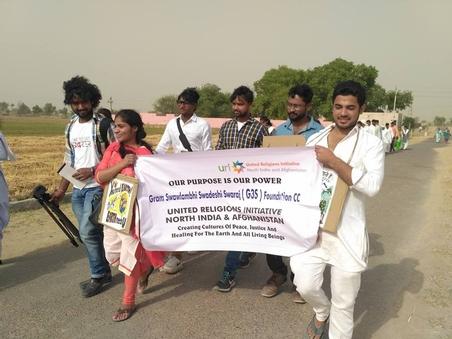Gram Swawlambhi Swadeshi Swaraj Foundation of North India honor the theme of World Environment Day 2018 by bringing awareness to the impact of plastics on local ecologies.
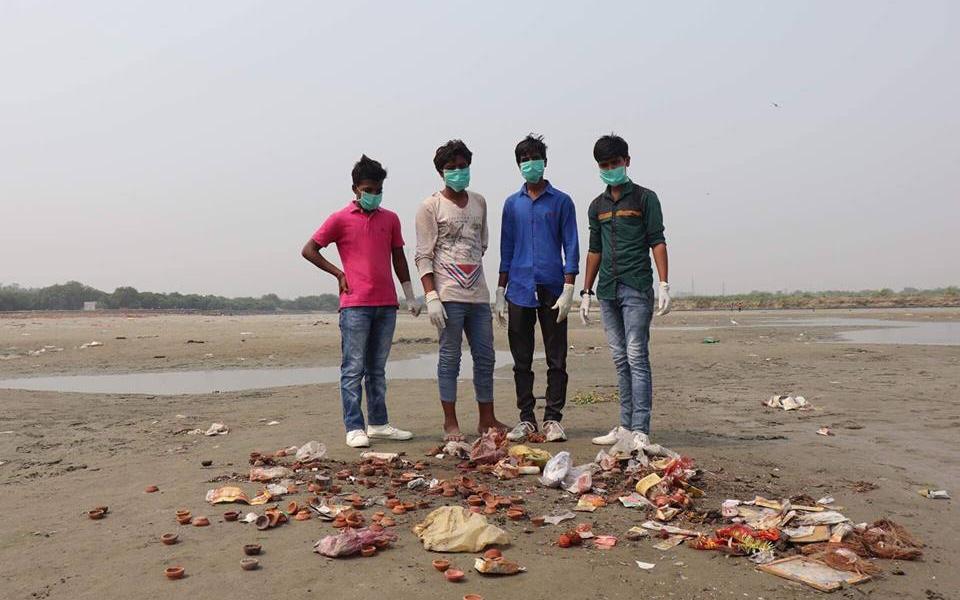
Members of Gram Swawlambhi Swadeshi Swaraj Foundation collect hazardous plastics and other waste along the Yamuna River.
Gram Swawlambhi Swadeshi Swaraj (G3S) Foundation organized a river clean-up, bringing the theme of World Environment Day, #BeatPlasticPollution, to bear on the health of their community. The team spent the day collecting plastics and other hazardous waste from the Yamuna, the longest and the second largest tributary river of the Ganges in northern India.
Last year, the Ganges and Yamuna rivers were granted the same legal rights as human beings. The ruling is symbolic and has direct manifestations in the world. The river Ganges, is considered sacred in Hinduism and is personified as the goddess Ganga, who's purity liberates from the cycle of birth and death. The river is a living entity, a whole being, with purpose and integrity.
While our spiritual conviction of the river may remain strong, economic development has meant a relaxing of sacred protocol: A Guardian reporter points out that "There are already 1.5bn litres of untreated sewage entering the river each day, and 500m litres of industrial waste,” "you can’t stop the discharge immediately. So how [granting the river legal rights] pans out in terms of practical reality is very unclear" (The Guardian).
Taking a closer look at the Yamuna, in Delhi, even though measures are in place to monitor disposal of sewage, farming pesticide runoffs, and other industrial waste, none of the treatment plants are working according to their design. The Yamuna continues to be polluted with sewage and industrial pollution to the point that the river has stagnated in many places with desecrated ecologies. To this day "Water from the Yamuna is treated chemically before being supplied to Delhi’s nearly 19 million residents as drinking water" (The Guardian).
The G3S Foundation is taking seriously the idea that if we cease to care, the river will cease to flow. Working towards a Pollution-Free Yamuna, the G3S team asked local youth to join in the clean-up efforts, educating their peers while they worked. The message also travelled to the University of Delhi where members of the G3S team urged students to refrain from using polythene, which is a major polluting plastic.
Team member, AK Kumar remarks on the success of the clean-up:
Children who were playing at the river enthusiastically participated in the cleanliness drive when they saw us doing this work. We removed garbage and other pollutants lying on the river bank and then we created a hole in the earth and put all the compostable things into that hole.
We removed as much plastic as we could. It was a totally successful [clean-up] because were were approached by people who asked what were were doing and we had the chance to talk to them.
We will not stop here. Whenever we get the time we will repeat this effort to clean our river.
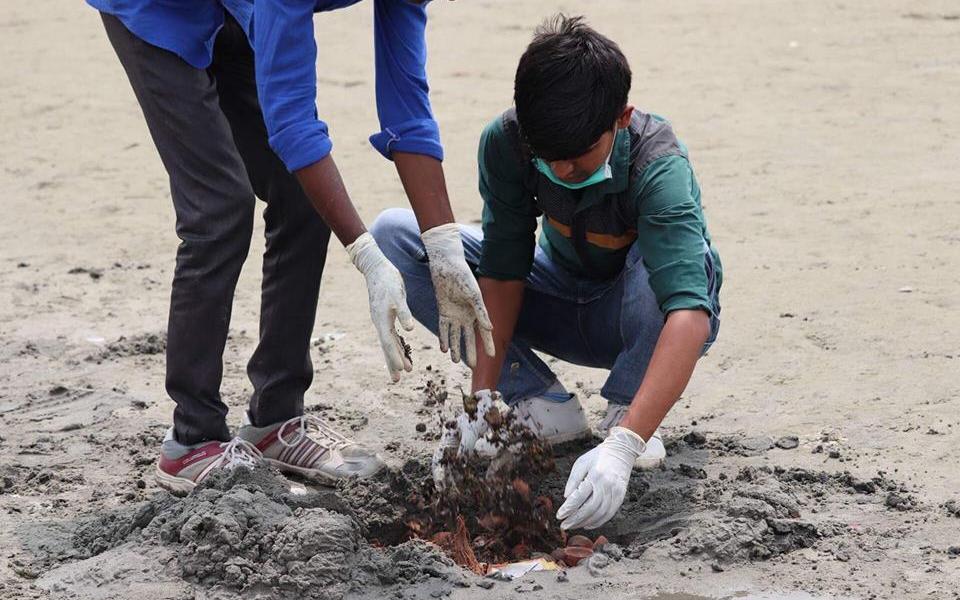
In conversation with Anil Kumar, one of the event organizers, it became clear that the main challenge was not one of physically cleaning the river basin, but of transforming locals' mentalities to attend to proper waste disposal:
The main challenges for us was to talk to the people and get them to not throw their garbage, in the name of their religion. I am happy to share that most people accepted our request and promised us that now they will never [throw their waste into the river, and will put their garbage] in the hole near by the river.
We have to change the beliefs and mindsets and it will take a little more time. Because, you know, it is very hard to change someone's religious beliefs.
